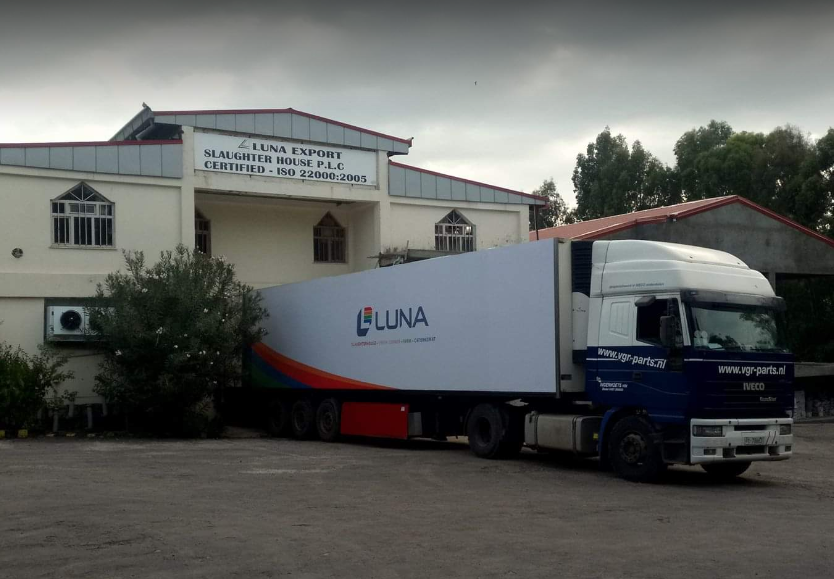
Radar | Apr 09,2022
Nov 23 , 2019
By TEMESGEN MULUGETA ( FORTUNE STAFF WRITER )
The government will procure 80,000tn of wheat grain worth an estimated 440 million Br. Financed by the World Bank, the procurement is the fourth phase of the Productive Safety Net Programme.
The Public Procurement & Property Disposal Service, on behalf of the Ministry of Agriculture, announced a tender this month inviting companies to supply wheat that will be used for the Safety Net Programme. The financial opening is scheduled to take place on November 26, 2019.
Financial capacity and liquidity of assets are the criteria for selecting the bidders. The wheat is expected to arrive after 45 days once a letter of credit is opened, according to Asefa Solomon, public relations team leader at the Public Procurement & Property Disposal Service.
After the wheat is procured, 26,000tn of grain will be stored in Adama, Oromia Regional State, while 30,000tn and 24,000tn of grain will be stored in Kombolcha and the Dire Dawa City Administration, respectively.
The Productive Safety Net Program, which started operations in 2005, was designed to elevate chronic food insecurity facing rural areas and assist them to overcome food shortages and become food self-sufficient.
The programme operates in the Afar, Amhara, Oromia, Somali, Dire Dawa, Harare, SNNP and Tigray regional states, as well as Dire Dawa, and reaches up to eight million people annually.
In the last fiscal year, the Public Procurement & Property Disposal Service procured 1.7 million tonnes of wheat from four international companies on behalf of the National Disaster Risk Management Commission, Ethiopian Business Corporation and the Ministry of Agriculture.
Ethiopia, which is identified as the largest wheat producer in Sub-Saharan Africa, spent 11.1 billion Br to procure the grain in the last fiscal year. In the 2017/18 harvest year, Ethiopia produced 4.5 million tonnes of wheat.
Bale, Arsi and Shewa are areas known for wheat production. In Ethiopia, there are close to 4.7 million smallholder farmers who cultivate wheat on 1.7 million hectares of land.
From the total production, close to 95pc of wheat comes from smallholder farmers who rely on seasonal rain, while the remaining five percent is from commercial farms. Ethiopia's annual consumption of grain amounted to 6.3 million tonnes last year. Of this, 30pc to 35pc of the demand is covered by imported wheat.
Out of the total production, 59pc of the wheat is consumed by farm households, while 20pc is supplied to the market and the rest is used for seed production.
The nation also has a plan to produce wheat on 50,000ha of land in Afar and Somali Regional State's lowland areas.
An expert in the sector believes that lack of proper policy on wheat and the government's commitment to the industry is the main challenge.
The policy does not consider the country's farmers, and this is the cause for not meeting the demand for wheat, according to Messay Mulugeta (PhD), a food security and poverty reduction expert and an associate professor at Addis Abeba University’s College of Development Studies.
“Although we have adequate human resources and land to cultivate enough grain and meet demand, lack of appropriate leadership at the government level has incapacitated supply,” said Messay.
PUBLISHED ON
Nov 23,2019 [ VOL
20 , NO
1021]

Radar | Apr 09,2022

Radar | Jun 01,2025

Fortune News | Apr 20,2019

Radar | Apr 29,2023

Fortune News | Aug 08,2020

Radar | Feb 29,2020

Fortune News | Mar 14,2020

Radar | Nov 13,2021

Fortune News | Jul 02,2022

Radar | Jun 27,2020

Dec 22 , 2024 . By TIZITA SHEWAFERAW
Charged with transforming colossal state-owned enterprises into modern and competitiv...

Aug 18 , 2024 . By AKSAH ITALO
Although predictable Yonas Zerihun's job in the ride-hailing service is not immune to...

Jul 28 , 2024 . By TIZITA SHEWAFERAW
Unhabitual, perhaps too many, Samuel Gebreyohannes, 38, used to occasionally enjoy a couple of beers at breakfast. However, he recently swit...

Jul 13 , 2024 . By AKSAH ITALO
Investors who rely on tractors, trucks, and field vehicles for commuting, transporting commodities, and f...

Oct 18 , 2025
The political establishment, notably the ruling party and its top brass, has become p...

Oct 11 , 2025
Ladislas Farago, a roving Associated Press (AP) correspondent, arrived in Ethiopia in...

Oct 4 , 2025
Eyob Tekalegn (PhD) had been in the Governor's chair for only weeks when, on Septembe...

Sep 27 , 2025
Four years into an experiment with “shock therapy” in education, the national moo...